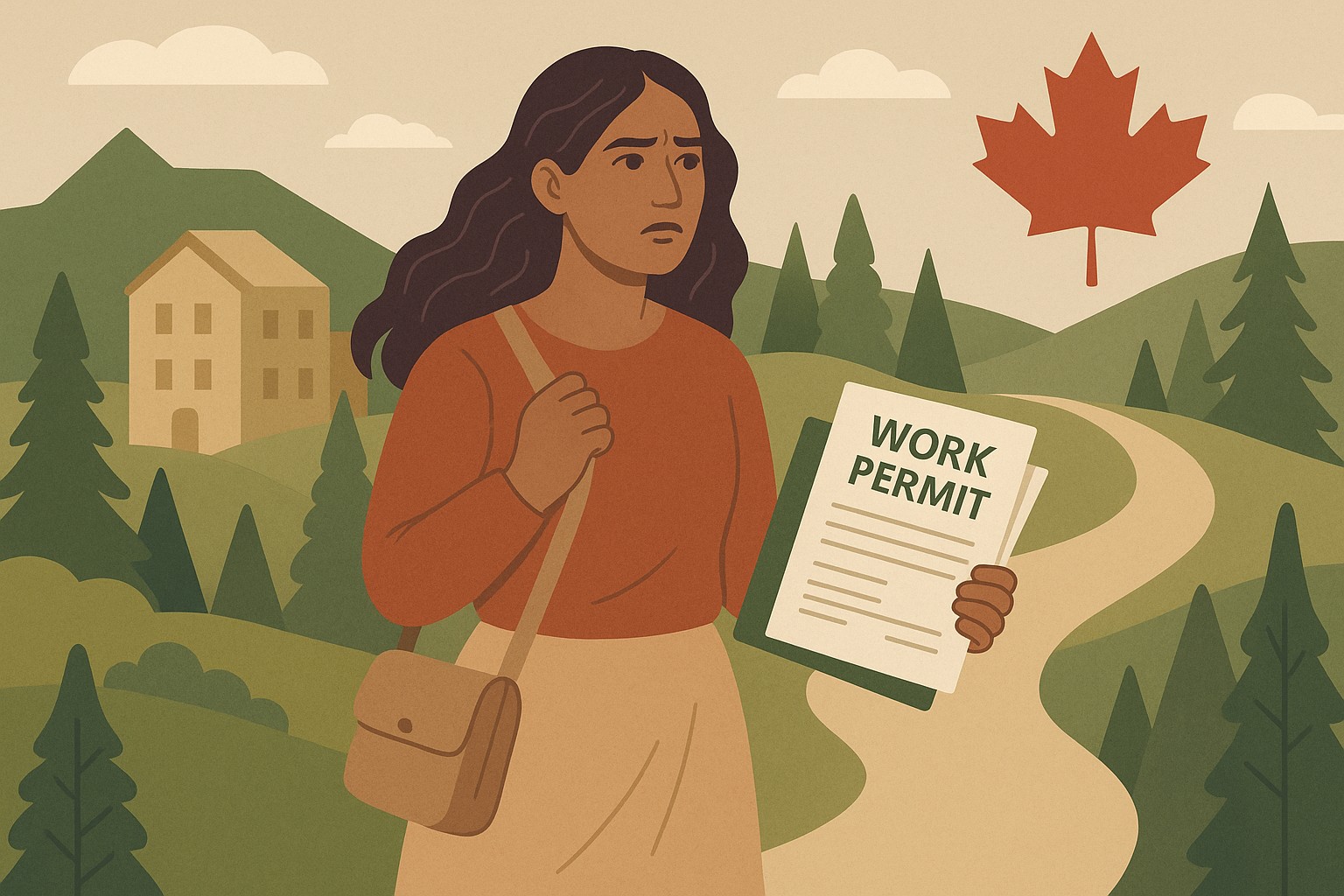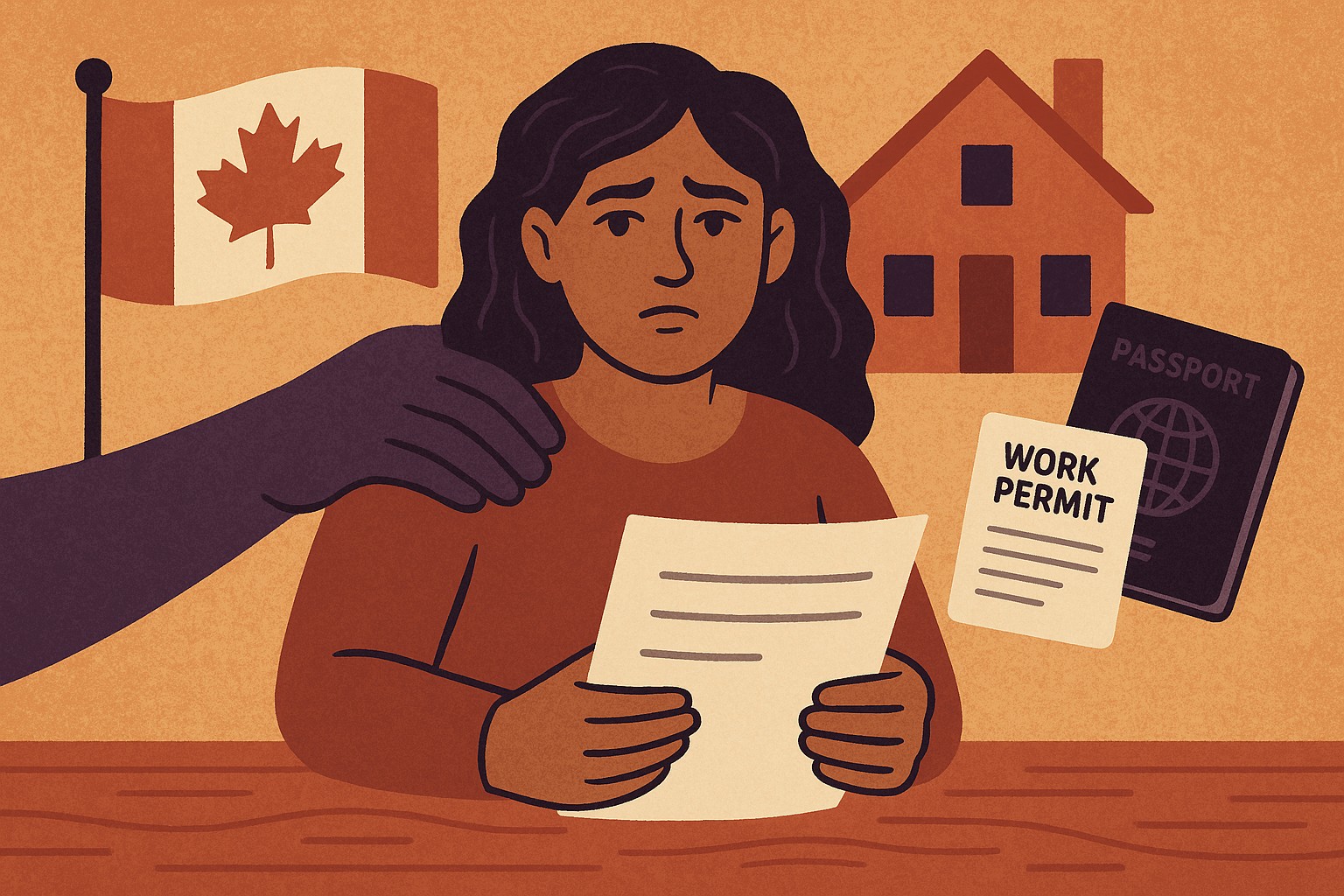A Survivor's Guide to Canada's Family Violence TRP and Work Permit
If your spousal sponsorship in Canada is breaking down because of abuse, you are not trapped. A special program from Immigration, Refugees and Citizenship Canada (IRCC) provides a **fee-exempt Temporary Resident Permit (TRP), an open work permit, and health coverage** for victims of family violence. Our guide explains the eligibility requirements, the evidence you need to provide, and the step-by-step process to apply for this confidential protection.

For a non-citizen in an abusive relationship, the fear of deportation can be used as a powerful tool of control by a sponsoring spouse or partner. Recognizing this extreme vulnerability, Immigration, Refugees and Citizenship Canada (IRCC) has a specific, confidential program to provide protection: the Temporary Resident Permit (TRP) for Victims of Family Violence.
As you’ve correctly noted, this isn't just one form, but a crucial package of protections. It allows a survivor whose spousal sponsorship has broken down due to abuse to secure temporary legal status, the right to work, and access to health coverage in Canada, all free of government fees.
This guide explains who is eligible, what the program provides, and how to apply.
What is the TRP for Victims of Family Violence?
This special TRP is a temporary immigration document that allows you to stay in Canada legally for a set period (usually at least six months) after leaving an abusive sponsorship situation. It is designed to give you a safe and stable environment to escape the abuse and decide on your next steps, without fear of being forced to leave Canada.
Are You Eligible? Key Requirements
You may be eligible to apply for this program if you meet all of these criteria:
- You are in Canada.
- You are being sponsored for permanent residence by a spouse or common-law partner.
- Your sponsorship application has not been finalized (i.e., you have not yet become a permanent resident).
- You are experiencing or have experienced family violence from that sponsoring partner.
"Family violence" is defined broadly and can include physical, sexual, psychological, or financial abuse, as well as neglect.
What Protections Does the Program Provide?
If your application is approved, you will receive a package of three critical documents, all exempt from the usual government processing fees:
-
A Fee-Exempt Temporary Resident Permit (TRP): This document legalizes your stay in Canada for a temporary period, ensuring you are not "out of status."
-
A Fee-Exempt Open Work Permit: This allows you to work for almost any employer in Canada. It is a vital tool for gaining financial independence from your abuser.
-
Interim Federal Health Program (IFHP) Coverage: This provides temporary, emergency-style health coverage for services like doctor visits, hospital care, and prescription medications while you wait to become eligible for provincial health coverage (OHIP in Ontario).

How to Apply: A Step-by-Step Guide
Step 1: Get the Application Package
The first step is to download the complete application package from the official IRCC website. Search for "Victims of family violence" on the IRCC site to find the dedicated page and forms.
Step 2: Complete the Required Forms
The package will include several forms. The main ones are:
-
IMM 5710: Application to Change Conditions, Extend my Stay or Remain in Canada as a Worker (this is the form for the open work permit). -
IMM 5708: Application for a Temporary Resident Permit. -
IMM 5558: Document Checklist.
You must fill these out completely. When asked why you are applying, you must clearly explain that it is under the family violence policy.
Step 3: Gather Evidence of Abuse
This is the most important part of your application. You must provide evidence to show, on a "balance of probabilities," that you have experienced family violence. This evidence can include:
-
A letter from a support organization in Toronto, such as a domestic violence shelter, settlement agency (e.g., COSTI), or community health centre.
-
A report from a social worker, counsellor, or doctor.
-
A copy of a police report or a court-ordered restraining order or peace bond.
-
A sworn affidavit or statutory declaration (
IMM 0006) where you detail the abuse in your own words. -
Photos of injuries or damaged property.
-
Copies of emails or text messages that contain threats or show a pattern of abuse.
Step 4: Submit the Application
Applications are typically submitted online through IRCC’s secure portal. You will need to create an account, upload your completed forms and all your supporting documents, and submit the package. There are no government fees for this application.
Important Things to Know
-
Confidentiality: IRCC will not notify your abusive sponsor that you have made this application. The process is confidential.
-
This is a Temporary Solution: The TRP and work permit are temporary. They do not grant you permanent residence. However, they give you the safety, stability, and time needed to explore other immigration options, such as applying for permanent residence on Humanitarian and Compassionate (H&C) grounds.
Where to Get Free or Low-Cost Help in Toronto
You do not have to do this alone. Toronto has excellent resources that can help you with this specific application for free.
-
Settlement Agencies: Organizations like COSTI, CultureLink, The 519, and WoodGreen Community Services have settlement workers who can help you with the forms and connect you to other supports.
-
Community Legal Clinics: Specialized clinics like the Barbra Schlifer Commemorative Clinic and the South Asian Legal Clinic of Ontario (SALCO) have deep expertise in helping immigrant women who have experienced violence.
Disclaimer: This is general information and not legal advice. Immigration law is complex and can change. It is highly recommended that you seek assistance from an authorized immigration representative (a lawyer or registered consultant) or a trusted settlement agency.
